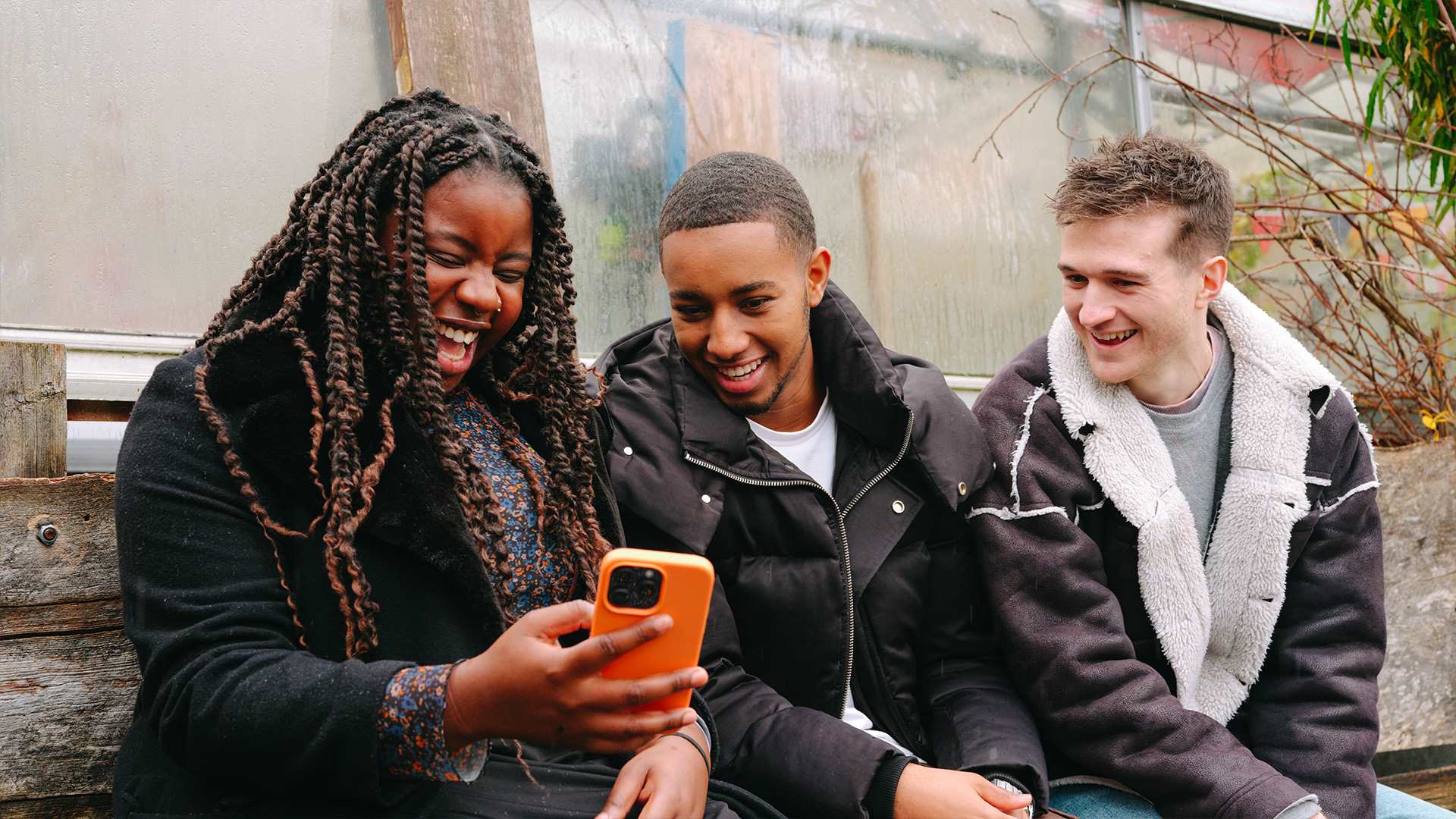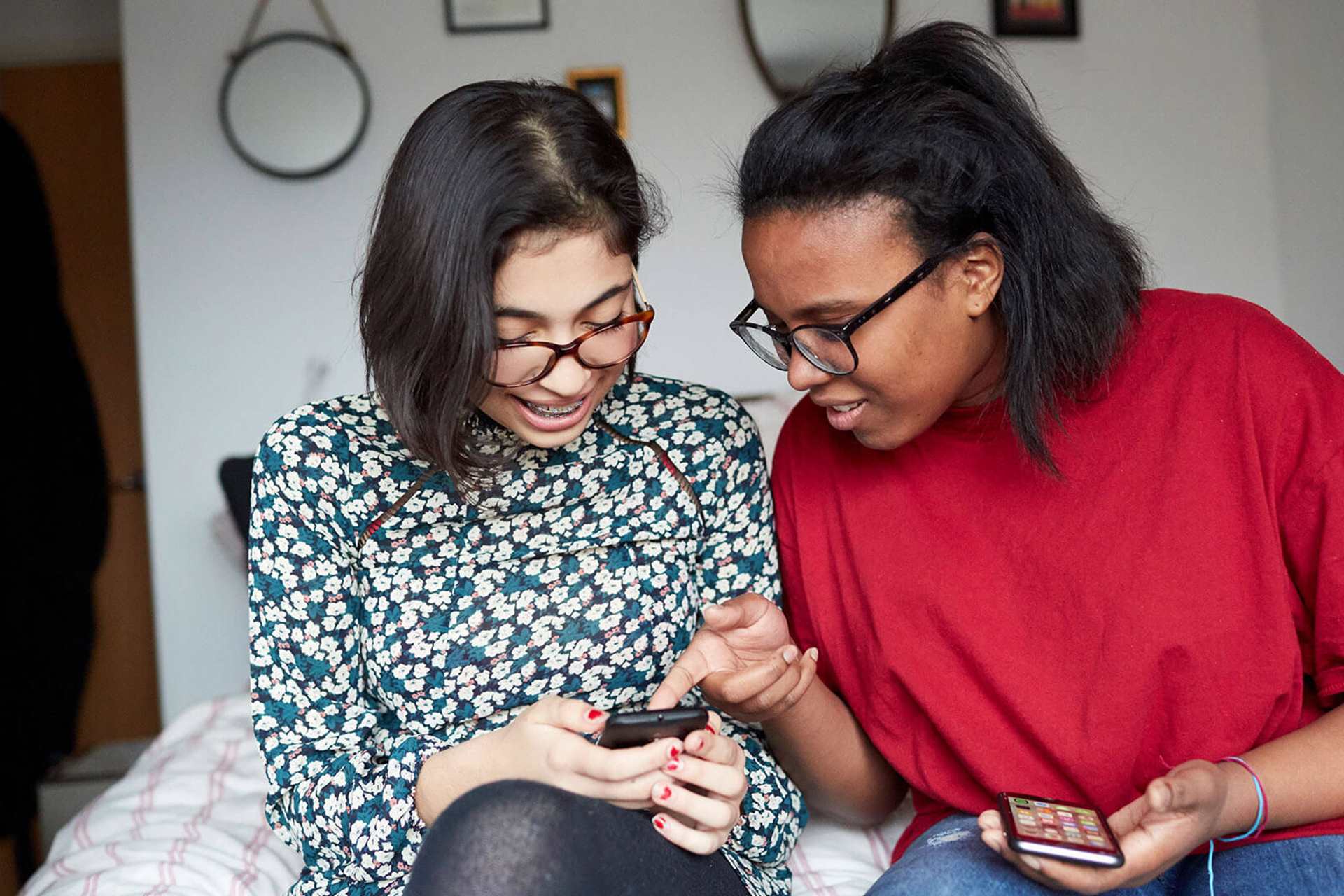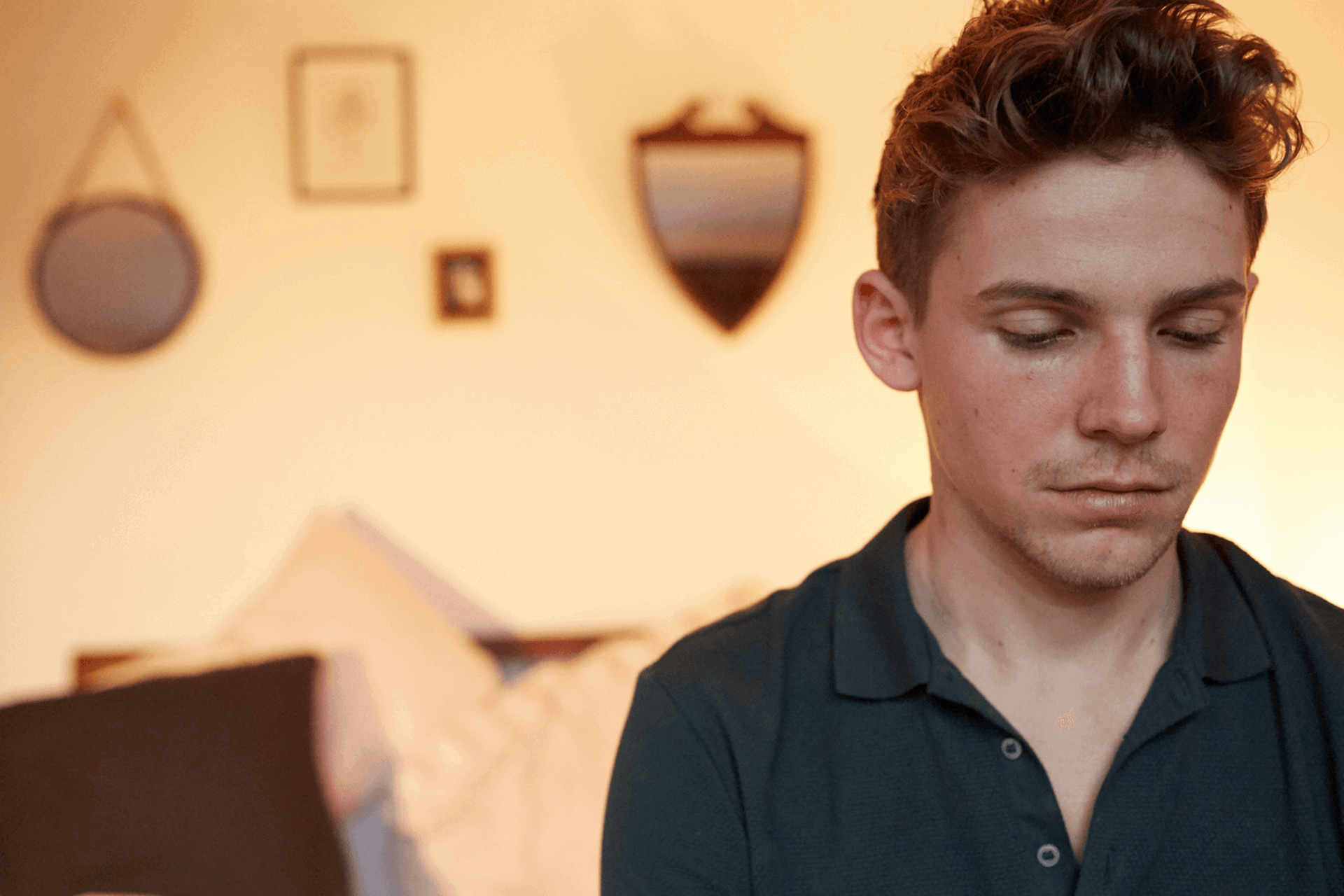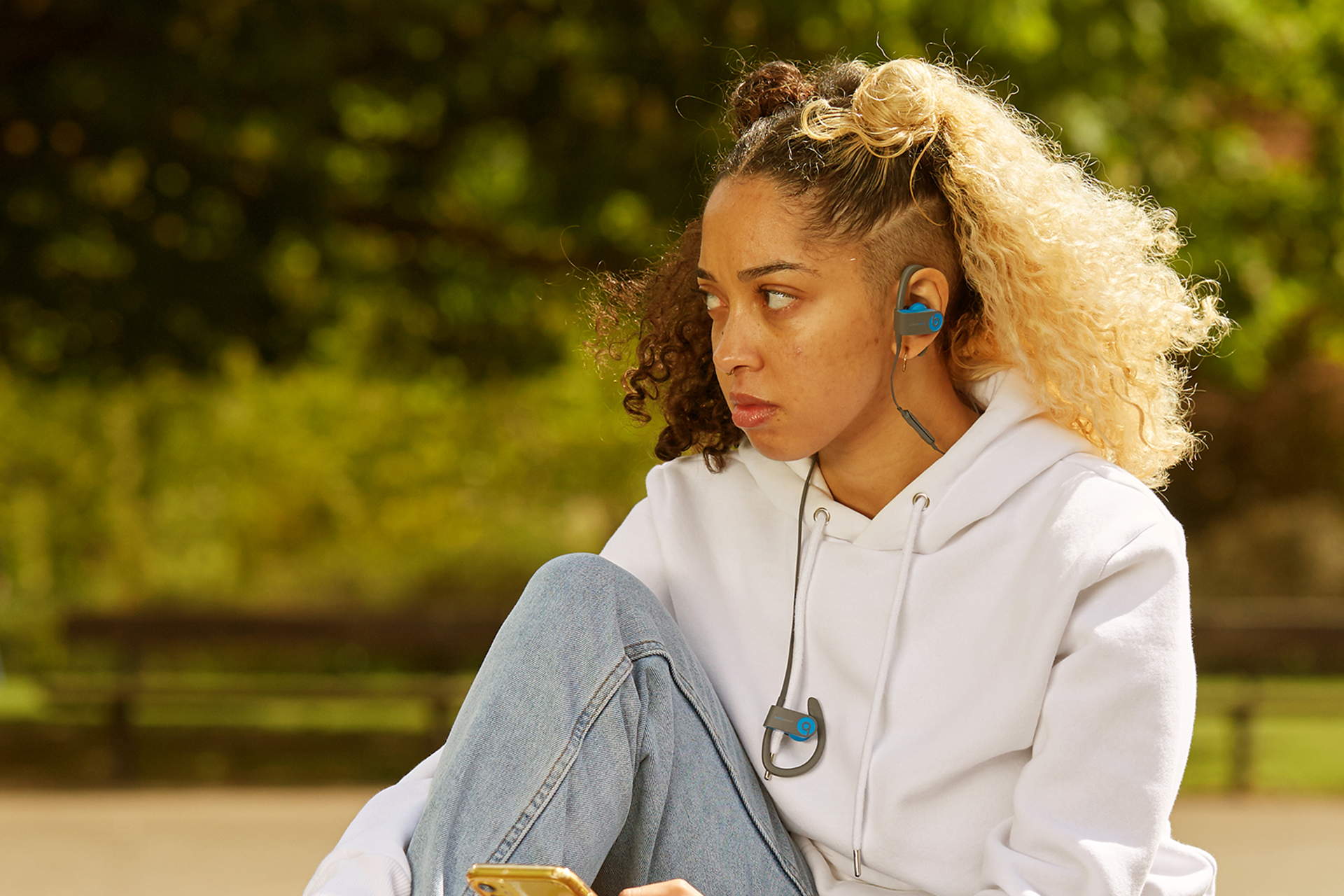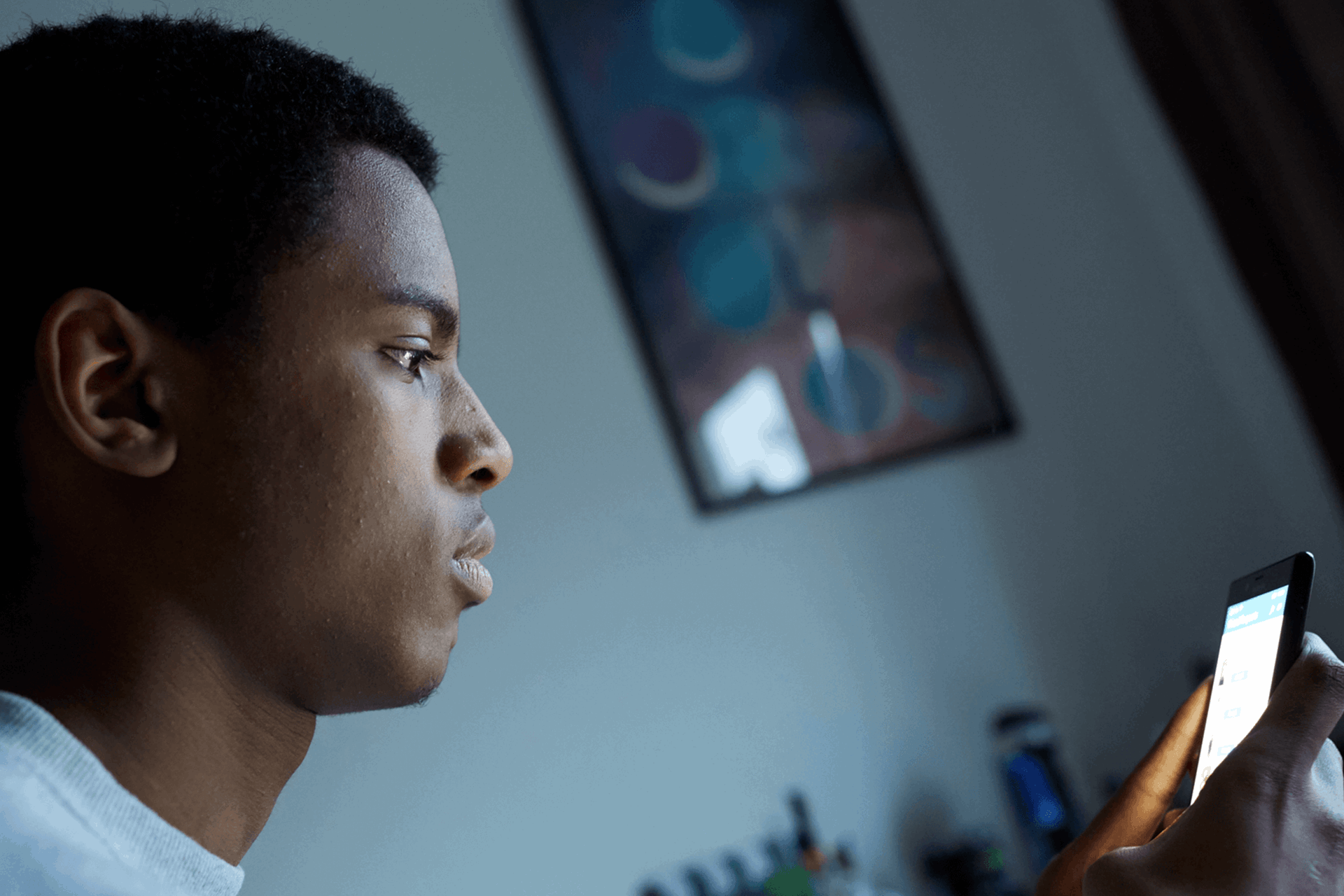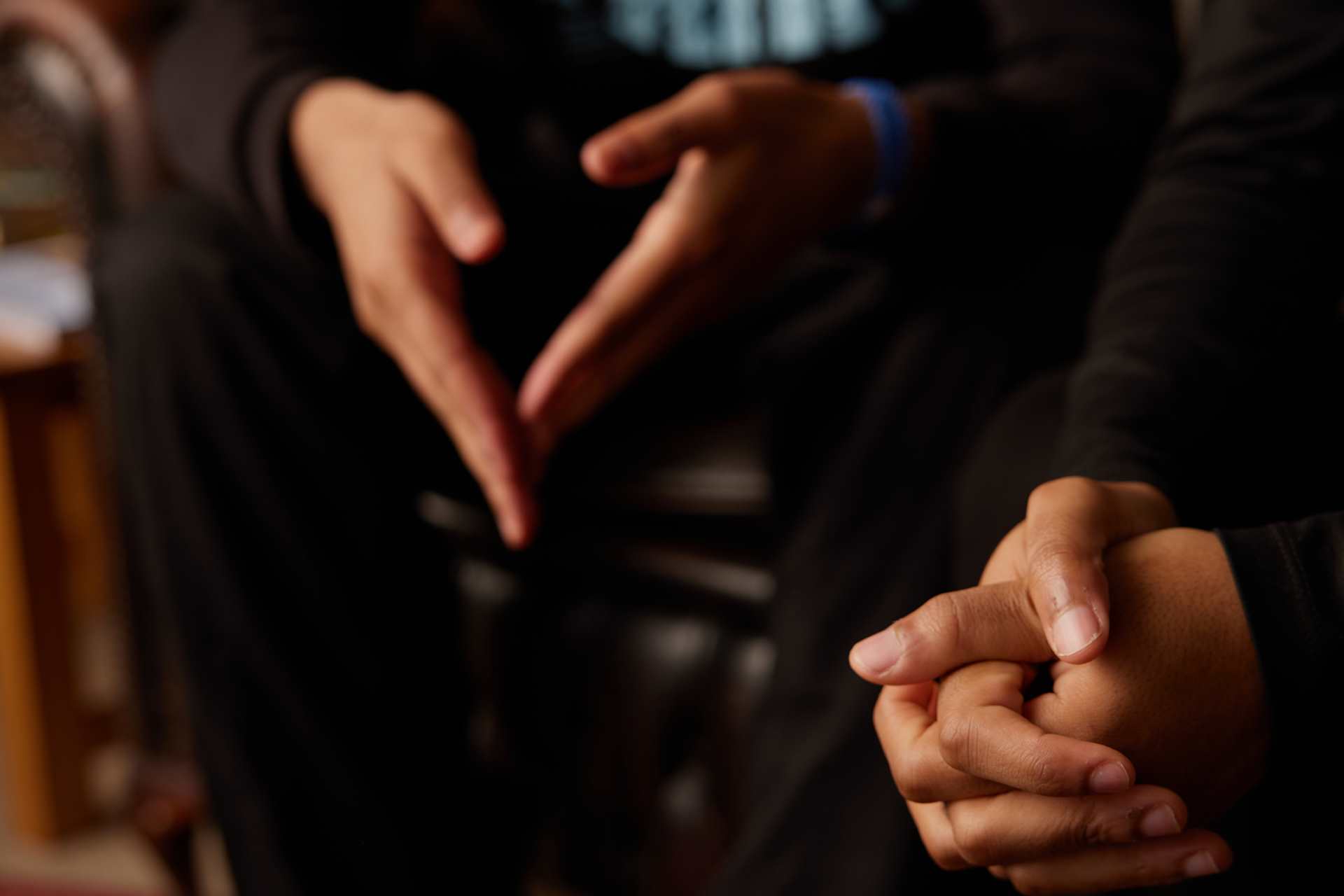How can social media impact your mental health?
Social media helps us stay connected with others and what’s happening in the world. But sometimes, spending lots of time online, endless scrolling, or just viewing difficult content can leave you feeling stressed, insecure, or overwhelmed.
It’s hard to find a balance, but by understanding how social media affects your mental health – both the good and the bad – you can take steps to enjoy the benefits and feel good about your time online.
The positive impacts of social media
Social media can help you build community. You can keep in touch with friends and family, find local groups or activities, and meet new people who share your interests or aspects of your identity. If you’re going through a difficult time, you might find comfort in meeting others who’ve been through something similar or in reading about their experiences.
Because anyone can create a profile and share their story, social media can be a better reflection of how diverse and varied our society is. This isn’t always the case in mainstream media. Seeing yourself represented in lots of different experiences is so important.
Social media platforms offer lots of opportunities to get creative. Like photos, videos, or sharing your thoughts in writing. They can also be helpful spaces to process your feelings or work out what you want to say before opening up to those around you.
Social media can offer lots of interesting new ideas, like recipes, crafting projects, tutorials, travel ideas or new activities to do.
Social media can be a great way to stay informed about what’s going on in the world, support causes you care about and make your voice heard through activism and campaigning so you can actively make a difference.
Social media is a great place to explore things you’re interested in, find new job or volunteering opportunities, or sign up for courses to learn new skills.
The negative impacts of social media
-
Comparing yourself to others
Seeing other people’s seemingly “perfect” lives online can make you feel like you’re not good enough. But it’s important to remember what you see online isn’t always the full picture. Photos can be staged, filtered, or edited, and people often share only the highlights or positive aspects of their lives.
-
FOMO (fear of missing out)
It’s common to feel like you’re missing out when you see others posting about exciting events, holidays or get-togethers. It can make you feel like you're not doing enough or missing out on something important. But everyone has downtime, challenges, and lonely times. We just might not always see it – you’re only seeing a small fragment of their life.
-
Echo chambers
Social media can sometimes feel like an echo chamber, where you mostly see posts and opinions that match your own. This is because of who you choose to follow, but also because platforms show you posts that it knows you’ll engage with using things like algorithms. This can make it harder to hear other perspectives, which could narrow your mind or even reinforce negative or harmful beliefs.
-
Pressure to reply and keep up to date
You might feel like you need to keep checking your social media or replying to every message and notification. You might even feel FOMO if you don’t check it all the time. This constant pressure can lead to anxiety and stress.
-
Overwhelming or triggering content
Social media can easily pull you into an endless scroll of sad news or upsetting content. This is sometimes called ‘doomscrolling’ and it can make you feel anxious, upset, or even unsafe.
-
Sleep problems
Spending lots of time on your phone late at night or when in bed can make it harder to sleep.
Tips for having a positive time online
Being online can be valuable, but it’s important to strike a balance between your time online and offline so you can protect your mental health. Here are some tips that might help:
-
Set limits
Decide how much time you want to spend on social media each day. For example, you could decide to check your accounts for 30 minutes in the morning and 30 minutes in the evening. Many phones and apps have settings that let you track and limit your screen time.
-
Take regular breaks
When you feel overwhelmed, step away and do something offline. This could be something creative, like drawing, or doing some exercise. Or arrange to spend time with friends in person.
-
Mute notifications
Constant alerts can make you feel pressured to check your phone. Try turning off your notifications for apps or putting your phone into ‘do not disturb’ mode so you can check your phone in your own time.
-
Unfollow or mute accounts
If accounts are posting upsetting content or content that makes you feel bad about yourself, you can unfollow or mute them. Try to follow accounts that inspire, motivate or make you feel good instead.
-
Be kind online
Focus on posting kind and supportive comments to others instead of negative ones. Positive comments can brighten someone’s day, and choosing not to be part of the negativity can help improve your interactions on the online world.
-
Avoid going online before bed
Using your phone or screens late in the evening can make it harder to sleep, so it can be good to stop using your device for a period of time before you go to bed. Try keeping your devices out of the bedroom and using a blue light filter in the evenings to help you unwind.

I realised I was following accounts and people that made me feel bad about myself - all I saw was their highlight reel, which made me feel like I was never good enough. I was following people I’d never talk to in real life and people that were never engaging with me. I eventually realised I needed to take ownership of my feed.
Thinking about what you post and share
What you post online is more than just words or pictures – it can shape how others see you and affect the people around you. Once something is out there, it’s often hard to control where it ends up or how it’s used. That’s why it’s important to think carefully before you share, so you can protect yourself and be mindful of how your actions might impact others. Here are some tips to consider before you post:
-
Ask permission
If you’re sharing a photo of someone else, make sure they’re okay with it first. Once it’s online, it’s hard to control where it ends up. They may feel embarrassed or self-conscious about it, and it could affect your relationship with that person.
-
Consider the impact on others
It’s easy to forget that online interactions are real, but words and actions can still hurt others. Before posting, think about whether it could upset someone – just because it’s online doesn’t mean it won’t have consequences in real life.
-
Stay safe with sexting or sharing nudes
Sexting involves sharing sexual messages or images, like naked pictures of yourself. If you’re under 18, it’s illegal to share, send or ask someone for nudes. Once they’re sent, there’s no way to make sure they won’t be shared further. So even if you trust someone, really consider before you share. If you’re feeling pressured to send nudes or uncomfortable in any way, talk to an adult you trust.
Safety and privacy: looking after your digital footprint
Everything you share online adds to your digital footprint. This is all the information you leave online, like photos, posts, comments, things you buy, games you play, and much more. It leaves a permanent record of your online activity that others can see.
It’s important to think about what your digital footprint looks like because:
- you might not always feel good about what you’ve posted
- people might use the information to find out things about your identity
- websites can use your information to target adverts at you
- the information you leave online could be seen by people who want to give you a job or university place in the future
Your digital footprint can be good or bad. It might show things you’ll later regret, but it can also highlight your skills and things you’re proud of. To get an idea of what yours looks like, try searching your name in Google to see what comes up. If you’re not comfortable with something you see, you can take steps to remove it.
Below is some advice to help you look after your online safety, privacy and digital footprint.
- Is this information that you want to share with others?
- Is it too personal?
- Does it have identifiable information like your address, school or phone number?
- Is it something you’re proud of or could it make you feel embarrassed in the future?
- Is it kind to others?
- Could it negatively impact how people see you?
If you’re unsure about the answers to any of these questions, you can always ask an adult you trust to take a look at the post before you send it. They can help you work out what the impacts of it might be.
You can change your settings and app permissions to help keep your privacy and know what data your phone is tracking. For specific advice on how to do this for different apps and websites, take a look at Childline’s guide to changing your privacy settings.
Not everything you post online can be easily deleted, but there are steps you can take if you need to remove something. Here’s what you can do:
- Deleting posts or accounts: Many social media platforms let you remove posts, images, or videos. Check the help section of the website or app for instructions. If you no longer use an account, consider deleting it entirely.
- Editing content: If you can’t delete something, see if you can edit it to remove personal details or offensive content.
- Removing posts by others: If someone else shares something about you that you want removed, ask them politely to delete it. If it's bullying or harmful, report it to the social media platform.
- Removing results from search engines: If a post appears in search results, contact search engines like Google or Bing to request removal. They’ll decide whether to take it down, but you can submit a request through their help pages.
- Removing nudes or inappropriate images: If someone shares nude or sexual images of you without your permission, it's against the law. You can report it to the platform for removal, or use tools like Childline’s Report Remove. If you're under 18, it’s illegal for anyone to have these images of you. You can also report it if someone is threatening to share sexual images.
If you need help with any of these steps, ask a trusted adult for support.
Dealing with cyberbullying
Bullying is never okay, whether it happens at school, at home, or on the internet. If you’re being harassed online, don’t keep it to yourself. Talk to someone you trust like a parent, carer or teacher so they can support you.
Here are some steps you can take to stop cyberbullying:
Get help now
-
Get Safe Online
Information and advice to help you stay safe and confident while using the internet, including tips to protect yourself, your devices, and your online accounts from things like fraud, identity theft, and viruses. It also covers how to back up your data, prevent your devices from being stolen or lost, and stay safe while shopping, gaming, or dating online.
-
Childline
If you’re under 19 you can confidentially call, chat online or email about any problem big or small.
Sign up for a free Childline locker (real name or email address not needed) to use their free 1-2-1 counsellor chat and email support service.
Can provide a BSL interpreter if you are deaf or hearing-impaired.
Hosts online message boards where you can share your experiences, have fun and get support from other young people in similar situations.
- Opening times:
- 24/7
-
Youth Access
Provides information about local counselling and advice services for young people aged 11-25.
Put in your location and what you need help with into their 'Find help' search, and see what services are available in your area.

This page was reviewed in January 2025.
It was co-created by young people with lived experience of social media and mental health.
We will next review the page in 2028.
YoungMinds is a proud member of PIF TICK – the UK's quality mark for trusted health information.
Whether you love the page or think something is missing, we appreciate your feedback. It all helps us to support more young people with their mental health.
Please be aware that this form isn’t a mental health support service. If you are in crisis right now and want to talk to someone urgently, find out who to contact on our urgent help page.
